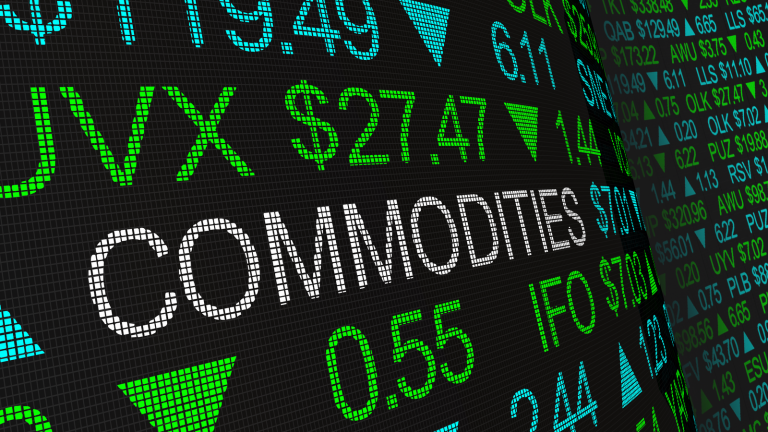If we look at the returns of various asset classes in the last twenty years, commodities are the most undervalued. During this period, the Bloomberg Commodity Index has delivered negative returns at a CAGR of 0.4%. Of course, this has been amidst volatility, but there is a strong case for healthy returns from commodities in the next five to ten years. From an investment perspective, it’s a good time to consider undervalued industrial commodity stocks.
Besides the long-term factor, there is another reason to be positive on industrial commodities. The world is moving towards expansionary monetary policies, and a Federal Reserve interest rate cut can trigger a rally in commodities. The reasons are a potentially weaker dollar coupled with demand growth visibility in a low interest rate regime.
Therefore, let’s discuss three undervalued industrial commodity stocks that can surge higher. The ideas discussed have the potential to deliver 100% returns within the next 24 to 36 months.
Vale (VALE)

Vale (NYSE:VALE) is among the most undervalued industrial commodity stocks to buy for robust returns. The stock trades at a forward price-earnings ratio of 4.9 times, and the valuation gap is likely to close once commodities trend higher. Besides the valuation factor, VALE stock offers an attractive dividend yield of 10.94%.
Recently, Vale reported Q2 2024 results, and there were several positives. First, the commodity company reported a 7% year-on-year increase in iron ore shipments to 80Mt. At the same time, copper production remained stable. While nickel production declined, it was due to maintenance.
It’s also worth noting that Vale reported an adjusted EBITDA of $4 billion. If commodities trend higher in the coming quarters, the commodity major will be positioned to report an annual EBITDA of $18 to $20 billion.
Therefore, overall business fundamentals remain strong. I must add that Vale is focusing on energy transition metals like copper and nickel. This diversification is likely to yield positive results in the long term.
Rio Tinto (RIO)

Rio Tinto (NYSE:RIO) is another undervalued commodity stock offering a healthy dividend yield of 6.69%.
It’s worth noting that RIO has returned (capital gains) 18% in the last five years. The more the recent correction has been for an extended period. However, Rio has a strong balance sheet, and business developments remain positive. I would expect much better returns in the next five years.
From a financial perspective, Rio Tinto has delivered impressive numbers. Between 2019 and 2023, the company reported an average annual EBITDA of $26.6 billion. The average annual free cash flow has been $7.7 billion for the same period. High financial flexibility allows the commodity major to make aggressive investments.
For Rio Tinto, the iron ore business remains the cash cow. However, the company has diversified, with interests in copper, aluminum, lithium, and titanium, among others. Strategic investments in metals that support global energy transition are favorable for long-term value creation.
Freeport-McMoRan (FCX)

Amidst the volatility, Freeport-McMoRan (NYSE:FCX) stock has remained sideways in the last 12 months. I see this consolidation as a good accumulation opportunity before the next big rally in this copper mining stock.
Recently, Freeport reported results for Q2 2024. During the quarter, the company produced one billion pounds of copper, 443,000 ounces of gold, and 20 million pounds of molybdenum. While the business is diversified, copper remains the key cash flow driver.
For 2024, Freeport has guided for an operating cash flow of $7.2 billion. With capital investment plans of $3.7 billion for the year, ample cash flows for dividends and share repurchases will be available. It’s worth noting that for 2025, Freeport has guided for capital investments of $4.1 billion. This is likely to be associated with an increase in copper and molybdenum sales.
An important point is that “green uses of copper had a 4% share in copper consumption in 2020.” This share is expected to more than quadruple to 17% by 2030. Therefore, as the world works towards a net-zero emission target, the demand for copper will continue to swell.
On the date of publication, Faisal Humayun did not hold (either directly or indirectly) any positions in the securities mentioned in this article. The opinions expressed in this article are those of the writer, subject to the InvestorPlace.com Publishing Guidelines.
On the date of publication, the responsible editor did not have (either directly or indirectly) any positions in the securities mentioned in this article.
